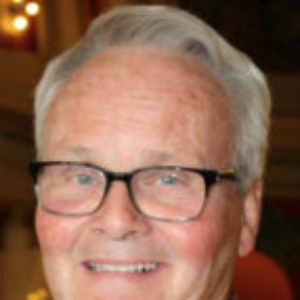By Sarah Roderick-Fitch, The Center Square
A coalition of state attorneys general is filing an amicus brief in the U.S. Court of Appeals for the D.C. Circuit, urging the court to lift a nationwide restraining order that is “preventing” the “immediate deportation” of “Tren de Aragua gang members.”
Leading the effort are Virginia Attorney General Jason Miyares and South Carolina Attorney General Alan Wilson, who joined 24 other states, including Montana, after a judge for the U.S. District Court for the District of Columbia issued an order temporarily halting the deportations of members of the Venezuelan gang. The order came as the aircraft carrying the gang members was airborne.
The deportations followed President Donald Trump’s announcement that he was invoking the Alien Enemies Act of 1798. This prompted Chief Judge James Boasberg to immediately issue a temporary restraining order blocking the removal of “all noncitizens in U.S. custody who are subject” to the president’s order.
Boasberg ordered the planes en route to Central America to be turned around. The Trump administration immediately appealed Boasberg’s order to the D.C. Circuit Court of Appeals.
The planes carrying the migrants arrived in El Salvador, with the Trump administration claiming they complied with the court order but that the aircraft was out of U.S. airspace by the time Boasberg issued his order.
In January, the president designated Tren de Aragua a foreign terrorist organization, along with seven other cartels from Latin America.
In the latest brief, the coalition of attorneys general argues that allowing the TRO to stand “undermines public safety and national security, placing American lives at risk.”
The group defended the president’s executive order, saying it is “grounded in clear constitutional and statutory authority to remove TdA members.” They added that the district court “overstepped its bounds by issuing a restraining order without fully considering the Executive Branch’s compelling interest in national security.”
Miyares underscored the duties of the government in protecting its citizens, adding that the president’s actions are constitutionally protected.
“The core duty of government is to protect its citizens. The President, acting within his constitutional and statutory authority, did just that by ordering the removal of TdA gang members who have no legal right to be in this country and pose a direct threat to Americans’ safety. TdA is a violent transnational criminal organization responsible for heinous crimes across the United States. The law is clear, and so is our position,” said Miyares.
The brief comes on the heels of Rep. Brandon Gill, R-Texas, introducing articles of impeachment against Boasberg, who was appointed to the bench by former president Barack Obama.
Earlier in the day, the president called Boasberg a “Radical Left Lunatic” in a Truth Social post, adding that the judge “should be impeached.”
The post led U.S. Supreme Court Chief Justice John Roberts to issue rare comments criticizing the president, saying the court system should be left to resolve legal disputes.
“For more than two centuries, it has been established that impeachment is not an appropriate response to disagreement concerning a judicial decision,” Roberts said Tuesday in a statement. “The normal appellate review process exists for that purpose.”
Other states that joined the coalition: Alabama, Alaska, Arkansas, Florida, Georgia, Idaho, Indiana, Iowa, Kansas, Kentucky, Louisiana, Mississippi, Missouri, Nebraska, North Dakota, Ohio, Oklahoma, Pennsylvania, South Dakota, Tennessee, Texas, Utah and West Virginia.


